Niger Presidential Election 2016: Guide To Candidates, Key Issues, Rules And Results
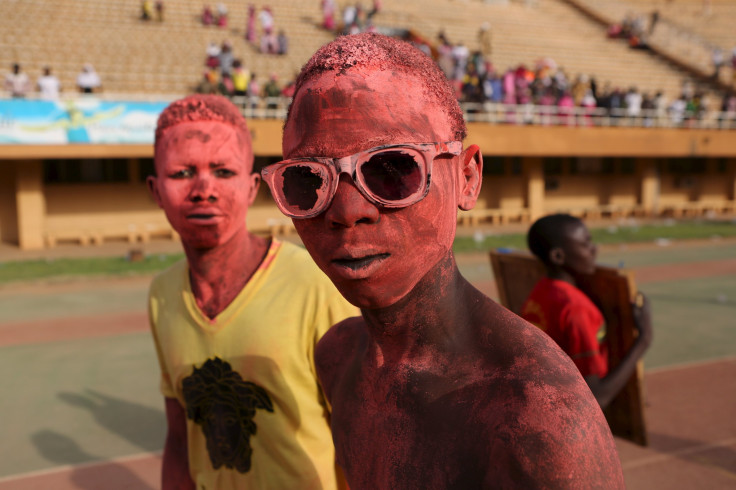
Niger President Mahamadou Issoufou is vying for re-election Sunday with promises of keeping the West African nation safe and politically stable. But as tensions rise amid a failed military coup, a slew of contentious arrests and one presidential challenger running his campaign from behind bars, Niger’s weekend election could trigger unrest and further decrease public confidence in a fragile democracy that has seen four coups d'état. With al Qaeda-linked fighters active to the north and west as well as Islamic State group-affiliated militants to the south, Niger is already in a hotspot for turmoil and a disputed election could push it over the edge.
“This election is already at extremely high stake,” said Lisa Mueller, a Niger specialist and assistant professor of political science at Macalester College in St. Paul, Minnesota. “Terrorism complicates it for sure.”
Candidates
In an interview with Agence France-Presse news agency Thursday, Issoufou said he was “absolutely” confident of winning re-election. The incumbent predicted he will make history with a “knock-out” first round victory in Sunday’s presidential election, which would be the first time Niger would not hold a runoff election. Issoufou, whose campaign slogan is “promises met,” said he has kept his pledges on economic growth, infrastructure and security in the face of terrorist attacks from Islamic militant groups operating in neighboring Nigeria, Mali, Algeria and Libya. Under Issoufou’s rule, Niger has become a part of an 8,700-strong regional force aimed at destroying Boko Haram, a terrorist group based in northeast Nigeria that has carried out deadly attacks across borders in Niger, Chad and Cameroon.
“The current president who is hoping for re-election is running on a strong security ticket emphasizing his immediate desire to defeat Boko Haram as well as strengthen security throughout the country,” said Zacharias Peiri, a specialist on Islamic movements and research fellow at the University of South Florida’s Global Initiative on Civil Society and Conflict in Tampa.
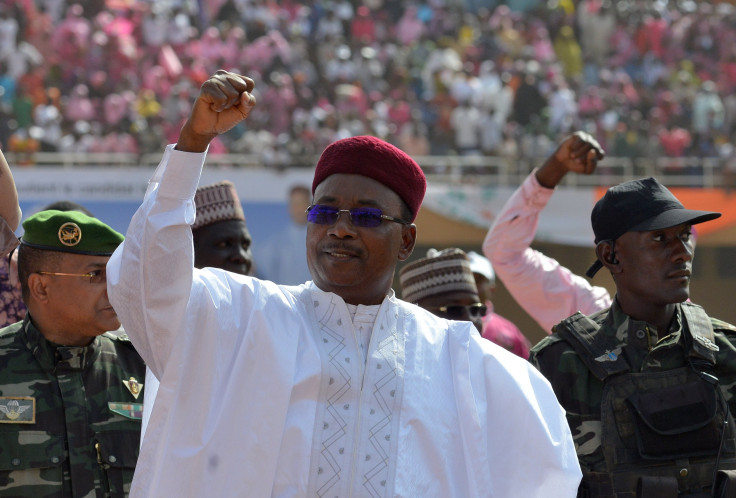
Known as the “zaki” or “lion” in Hausa, the majority language in Niger, Issoufou has been in power for nearly 5 years. He previously served as prime minister before becoming Niger’s main opposition leader and winning the 2011 presidential election. The mathematician and mining engineer turned politician faces 14 challengers in Sunday’s vote.
“Issoufou may benefit from being able to capitalize on his responses to date to terrorism,” Mueller noted in a telephone interview Friday. “But that has proven an inadequate shield against his opposition, which has seemingly spurred him to endorse the arrests of his doubters,” she added.
The opposition has accused Issoufou of becoming increasingly authoritarian and arbitrarily arresting his perceived opponents. One of the president’s contenders, Hama Amadou, was jailed in November on charges for baby trafficking. He denied any wrongdoing and said the allegations were politically motivated. He has been denied bail but cleared to run for office, even if it’s from behind bars. The incident has put Amadou in the spotlight as a viable challenger in Sunday’s election.
“He’s gained more notoriety and people in Niger have even used the word 'martyr' to refer to him,” Mueller said.
The 66-year-old prisoner-candidate has already held a number of government positions, including vice president and parliament speaker. In 2011, Amadou helped Issoufou win the presidency with 58 percent of the vote in a run-off election. He is now running against his former ally as a candidate for the Nigerien Democratic Movement party.
Seini Oumarou is also among the favorite contenders. He was the runner-up to Issoufou in the 2011 presidential race and served as prime minister under former President Mamadou Tandja, who was ousted in a military coup in 2010 after a decade in power. Oumarou, 65, is running for the National Movement for the Society of Development and this is his second time competing for the presidency.
Meanwhile, Niger’s first-ever democratically elected president is hoping to step back into power. Mahamane Ousmane, 66, is running for the MNRD party, or Nigerien’s Movement for Democratic Renewal. The ex-president was toppled in a coup three years after his 1993 election and has sought a fresh start in every presidential election since, according to AFP.
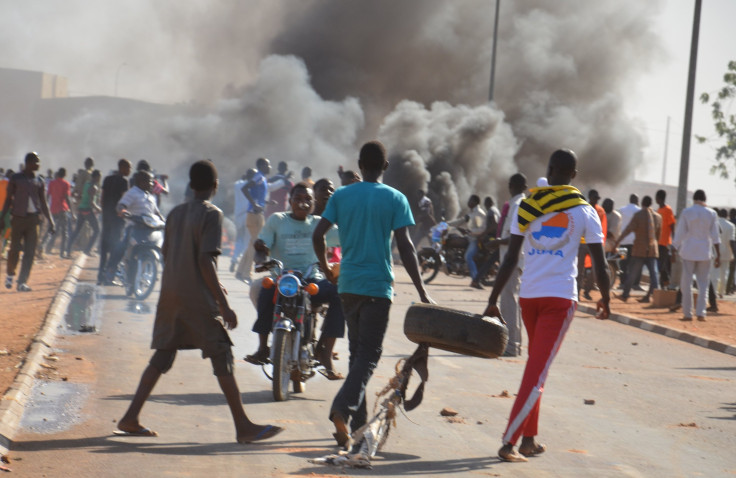
Key Issues
Niger is rich in minerals and ranks fourth among global uranium producers, but its people are among the world's poorest. Perennial hunger and food shortages plague the impoverished country, where less than a third of adults are literate and 76 percent of its people live on less than $2 a day. Niger has consistently ranked at the bottom of the U.N. Human Development Index and the country regularly faces food crises due to climate change-linked droughts and flooding. The United Nations said two million people will require urgent food aid in Niger this year, despite a healthy crop surplus.
Niger’s mineral-dependent economy is extremely vulnerable to external shocks and has suffered from slumping commodity prices due to a global market glut. Uranium prices plunged in 2011, when the Fukushima disaster prompted Japan to shut down all of the country’s nuclear power stations. Demand for the heavy metal has struggled to recover post-Fukushima and has created an oversupplied market. Fitch Ratings expects uranium spot prices to remain low for the rest of the decade, according to Mining Weekly. The agriculture sector, which contributes about a third of Niger’s GDP, is also grappling with recurrent drought in the arid region.
Countries like China and France have invested billions in Niger’s key economic sectors and infrastructure projects via lucrative mining contracts. And since taking office in 2011, Issoufou has implemented a program called “the Renaissance” which aims to reinforce democratic institutions, tackle security issues and improve development in the former French colony. The program has built new roads, railways and other infrastructure projects, improved drought resilience, increased access to clean water, created jobs for youth and also provided free and compulsory education for young people up to age 16.
“But those improvements are never enough,” Mueller said. “Niger is still arguably the poorest country in the world.”
Educational and healthcare infrastructure is still practically nonexistent in Niger, Mueller said. And the government is struggling to secure investment amid turmoil in China’s economy, which led to an 84 percent plunge in Chinese investment in Africa in the first half of 2015, according to the Financial Times.
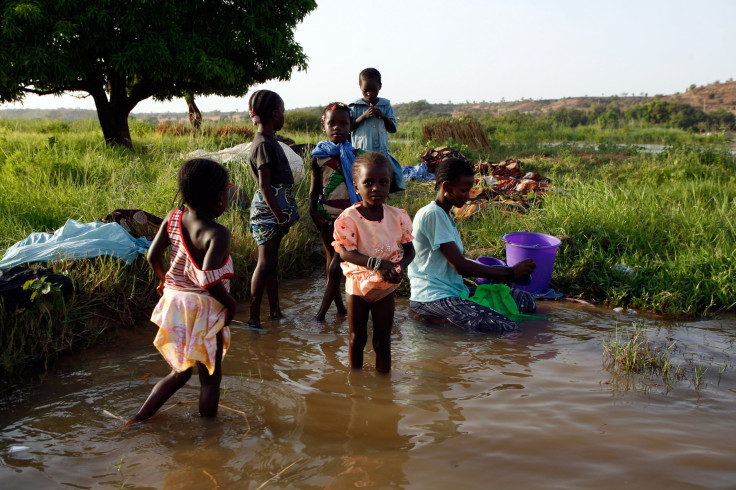
Niger’s geopolitical location puts it in a regional hotbed for Islamic terrorism. Niger borders a number of countries where militant groups are active, including Mali, Algeria, Libya and Nigeria. Al Qaeda in the Islamic Magreb, or AQIM, is operating to the west and north of Niger in Mali, Algeria and Libya. The Islamic State group, also known as ISIS or ISIL, has deepened its foothold in Libya and North Africa. Boko Haram, which pledged allegiance to ISIS last year, frequently launches deadly attacks in northeast Nigeria and border towns in Niger. With Niger at the center of encroaching Islamic military, terrorism experts said the country is at risk of becoming a battlefield for the establishment of future Islamic states in the region.
“The threats are multiple,” said Pieri, who researches Boko Haram, ISIS and al Qaeda. “W e know that Boko Haram has an active interest in seeing Niger incorporated into a future Islamic emirate established in the area falling under the wider auspices of the Islamic State group’s caliphate. We also know that Boko Haram has a desire to connect with ISIS affiliates operating out of Libya, and to do so they would need to go through Niger.”
The incumbent Issoufou has already worked closely with Nigeria to battle Boko Haram and has long warned of terrorism in Libya as a threat to stability in the Sahel region. Whoever wins must continue working closely with neighboring countries and all relevant stakeholders, according to terrorism experts.
“The presidential election in Niger is of vital importance to the fight against Boko Haram and AQIM in the region,” Pieri said in an email Friday. “The new president will be instrumental in deciding the direction of counterterrorism policy as well as having quickly to decide on which threats to tackle.”
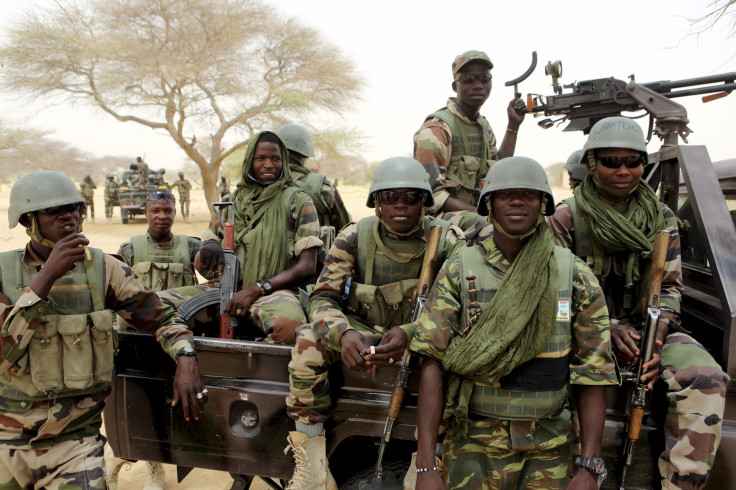
Election Rules and Results
Niger's constitution states that a presidential candidate must win an absolute majority of the valid ballots cast to avoid a run-off election with the second-ranked candidate within 21 days. Preliminary results are expected to trickle in within days of voting. Niger's parliamentary elections will also take place Sunday.
Just 7.5 million out of Niger’s population of 19 million are on the electoral register. Days before Sunday’s vote, Niger’s electoral commission CENI authorized a new system for identifying voters during the Feb. 21 elections. The “vote with witnesses” method will allow someone with no identification papers to vote if two witnesses who are registered at that particular polling station can confirm his or her identity, according to News Ghana, which cited China’s Xinhau news agency.
The new scheme is meant to be a solution for the 1.5 million people – nearly a quarter of Niger’s potential voters – who would otherwise be barred from casting ballots in Sunday’s elections because they lack documentation to prove their identity. The opposition, however, has vehemently rejected the method, saying it violates the electoral code and will facilitate ballot rigging.
“That’s extremely worrisome so close to the elections,” Mueller said. “The opposition is really questioning the legitimacy of the entire democratic process.”
Niger’s last presidential election in 2011 was peaceful, but it came on the heels of four coups d'état since the country declared independence from France in 1960. Niger’s government arrested nine military officers in late December for allegedly planning a coup against the president. Niger has ramped up its security for the upcoming elections and international election observers are keeping a tight watch. But tensions are quickly rising and there are fears Election Day will turn violent.
“Everyone is afraid the outcome could be exceptionally serious,” Moussa Tchangari, a leading civil society and opposition figure, told AFP on Thursday.
© Copyright IBTimes 2024. All rights reserved.





















